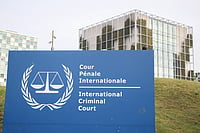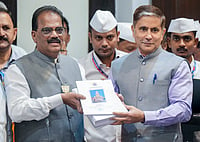
Summary of this article
Banks and insurance companies in India have pressured customers into buying insurance and complex financial products, sometimes disguised as safe investments, leading many to lose lakhs or even crores of their life savings.
Victims like Kumar Awasthi and Chuni Lal lost significant savings due to high-pressure sales tactics, misleading pitches, and opaque product details, highlighting the personal and financial toll on ordinary citizens.
Despite repeated complaints, regulators have often remained silent, allowing mis-selling to persist, and the documentary Mis-Sold exposes the exploitation while questioning who safeguards consumer trust.
For many, a visit to the bank is a moment of trust, the reassuring hum of air conditioning, the polite smiles across the counter, and the comforting belief that one’s hard-earned money is safe. But behind this veneer of professionalism lies a story of quiet deception, one that has left hundreds of ordinary Indians poorer, disillusioned, and in some cases, devastated.
Over the past few years, countless individuals, from retired teachers and small business owners to young professionals, have watched their life savings vanish. The culprit? The rampant mis-selling of financial products, particularly insurance, by banks and insurance companies that were meant to safeguard their customers’ futures. Victims recount how they were pressured into buying insurance products when applying for loans, and in some cases, were misled into purchasing risky instruments like bonds disguised as insurance, ultimately losing their life savings.
A documentary, Mis-Sold by 1 Finance, shines an unflinching light on this growing menace. Through personal stories and expert insights, it uncovers how financial institutions and their agents have turned the sale of insurance and mutual funds into a ruthless numbers game. Policies are pushed under the guise of “investment plans” or “tax-saving tools,” leaving customers trapped in long-term commitments that yield little to no return.
Take the case of Kumar Awasthi. A 1962 India-Pakistan War and 1971 Bangladesh War veteran, Awasthi lost his lifetime savings of Rs 1.38 crore when a bank executive, who was his son’s friend, offered to invest his savings in a FD which later turned out to be a risky bond.
Chuni Lal, a resident of Tarwa Gaon near Udaipur, recounts a troubling experience with a local bank. When he went to secure a loan, he was compelled by a bank executive to purchase an insurance policy as a precondition for disbursement. “My loan was approved, but the bank official told me that unless I bought an insurance policy, the funds wouldn’t be released,” Lal recalled. Of the Rs 2,00,000 loan he applied for, only Rs 1,70,000 was actually disbursed, with the remaining Rs 30,000 deducted to cover the insurance premium, leaving him frustrated and financially shortchanged.
Kanan Bahl, Co-director of the documentary highlights how the practice of mis-selling has been happening for years at a rampant scale as there is little awareness about these products among the masses. “The practice of selling an insurance product as a fixed deposit or something else is rampant and has been there for years. These products are at times complex to understand and executives from the companies pitch them as a lucrative investment option,” Bahl says. Batul Kapasi, Co-director of the documentary explained how key details about the products are at times hidden in the forms which escapes the customer’s eye. “The forms of these products have some of the keys details written in such small fonts, that at times
The result of all these practices is that ordinary citizens lost lakhs and sometimes crores of their life savings, while the institutions responsible continued to thrive, often with little accountability. Behind each loss lies a familiar pattern, high-pressure sales tactics, half-truths, and paperwork so dense that even the most financially literate struggle to decipher it. What makes the story more alarming is the silence of those meant to protect consumers. Regulators, despite repeated complaints and media reports, have been accused of turning a blind eye, allowing this systemic exploitation to continue unchecked.
Mis-Sold is more than a documentary; it’s a mirror held up to a broken financial system. It asks a question that affects millions: when trust is sold for commission, who protects the saver?























